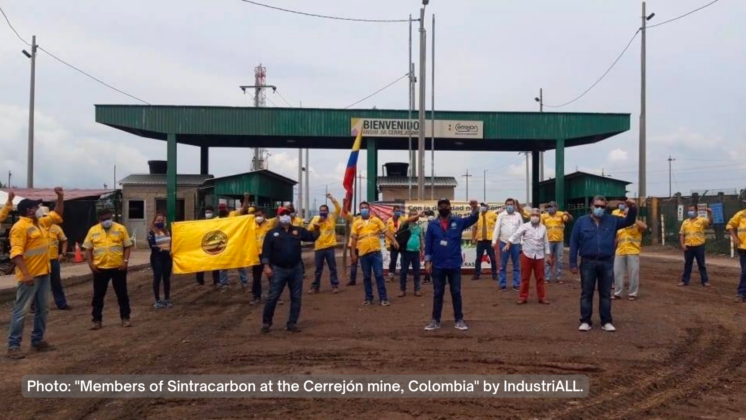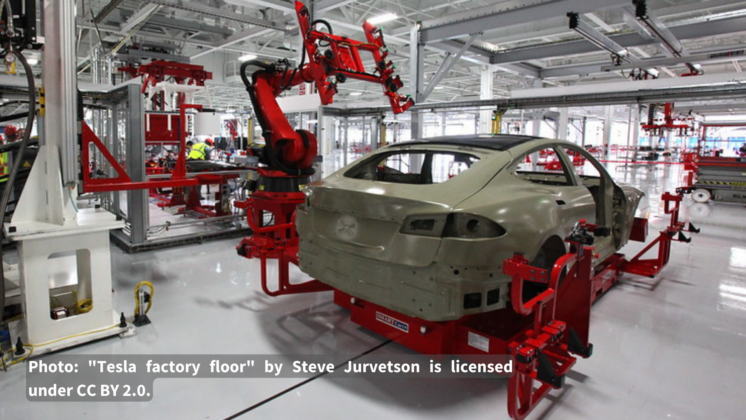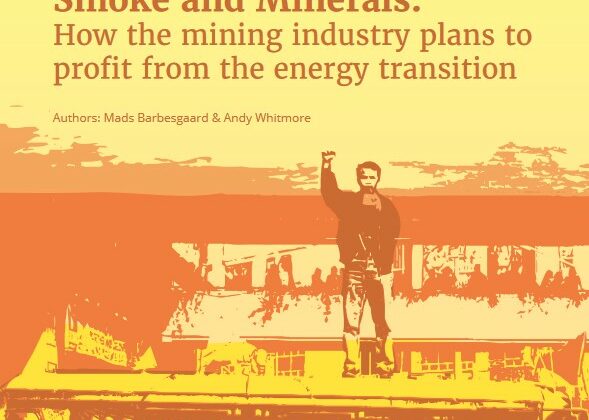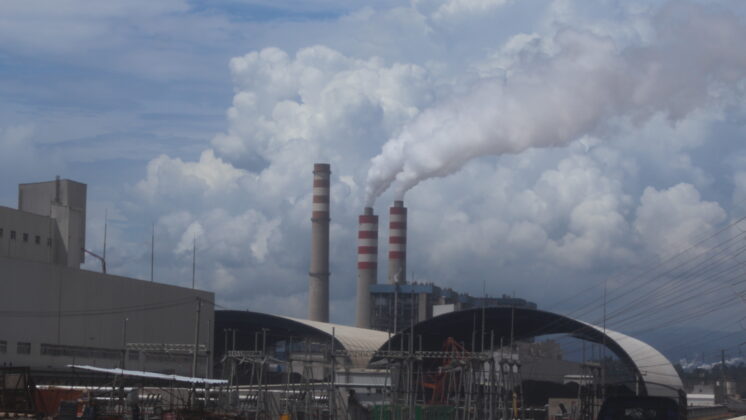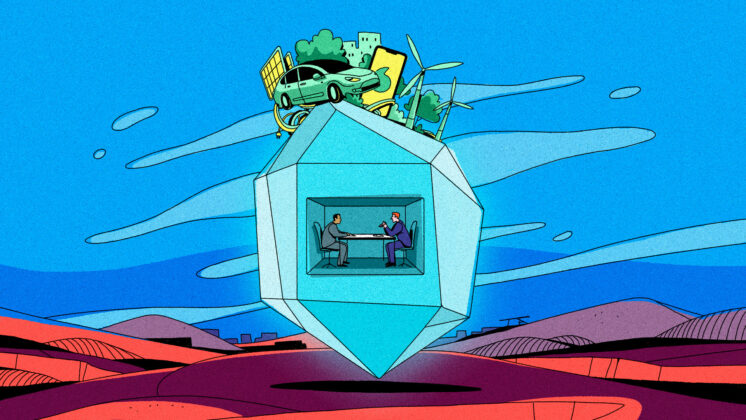The Just Transition and the Energy Sector initiative provides a platform for unions around the world to exchange information on energy transition technologies and the jobs, skills, markets, investments, and emissions related to them. The ITUC, LO Norway and IndustriALL held a workshop on solar photovoltaic and battery technology as part of the initiative on 26 September.
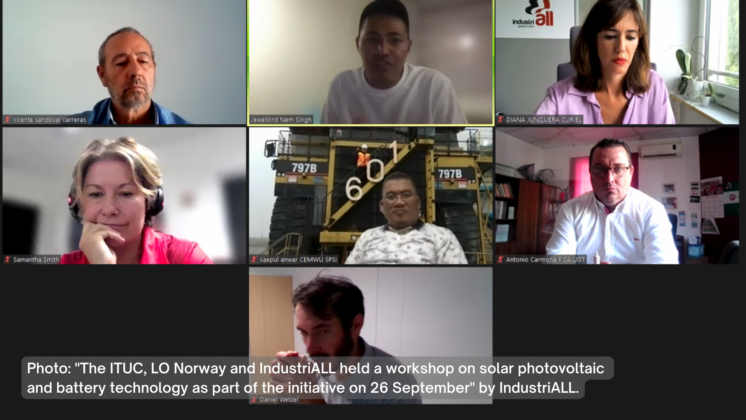
While clean energy is fueling significant employment growth, research shows that the bulk of workers contributing to new energies work in the construction phase. Once the facilities are built there will be new jobs, although fewer than today. While the demand for solar energy is on the rise, solar plants use significantly less workers.
Today there is competition for batteries due to wide usage and demand. Companies are trying to secure access to the minerals needed for battery production, and there is research on alternatives over fear that the minerals will run out.
China has significant control over clean energy minerals and production. China’s presence in the rest of the supply chain – raw materials, processed materials, components and assembly – has an impact on the type of workforce taking part in this transition.
Dr. Jojo Nem Singh, assistant professor at the International Institute of Social Studies, explained that there is a lot of pressure on developing countries with mineral reserves needed to produce renewables and other clean energy technologies.
“In terms of the geographical spread, we are dealing with very different countries than those who produce oil and gas. The current distribution of mining countries in the supply chain will change dramatically because of mining investments in minerals needed for renewables. Done right, mining can provide green jobs that don’t have to be poverty generating – the key is processing technology and ensuring local content requirements can create inclusive growth and new jobs.”
IndustriALL automotive sector director, Georg Leutert, has been working with affiliates to ensure that battery plants are owned by automobile factories, because they are well organized with quality longstanding CBAs. However, there are only few examples of this. Battery production needs large facilities and requires significant investment, workers today are seeing it being outsourced by auto makers.
The energy sector employs about 65 million people worldwide in fuel supply, the power sector and in end uses.
“This is an important benchmark for the discussion around just transition, and important information to make critical energy policy decisions going forward. This pivot to clean energy is also an opportunity to address issues like gender and representation,”
said Daniel Wetzel from the IEA.
Wentzel concluded that while clean energy jobs outpace losses, losses are acute in certain regions and sectors. There is a lot of investment needed to ensure a good transition. Rapid employment growth also represents risks: the need for more skilled workers, growing skills gaps and insufficient focus on decent work.
Mahatma Santos from the Institute of Strategic Studies on Oil, Natural Gas and Biofuels Zé Eduardo Dutra (INEEP), whose mission is to produce knowledge about the sector and support institutions in Brazil with technical reflection on energy security, said:
“There has been an increase in prices and demand in the solar photovoltaic sector since 2021, creating about 151,000 jobs. However, 43 per cent of jobs are outside of Brazil, the jobs are concentrated in construction and characterized by precarious working conditions and low wages”
There is strong potential in Brazil for the expansion of the sector but the delay in projects, lack of tax incentives and shortage of equipment has made growth difficult.
Energy transition in Brazil is at a critical moment. Election results this week will have a considerable impact on the country’s direction for just transition.
Mining is the backbone of the Chile’s economy, yet the industry creates few jobs. The country is a major producer of critical minerals, where 14 per cent of the workforce is unionized and only 8 per cent have access to collective bargaining.
“Chile’s social and environmental challenges makes it difficult for workers to progress. Unions will continue to work hard for more social dialogue, especially around just transition”,
said Alejandro Ochoa, from CUT Chile.
Igor Diaz, from Sintracarbon, Colombia, reported that the mining industry has seen difficult times in the country. Glencore for example, took advantage of the previous government’s softer regulation, using the pandemic and just transition as an excuse to close plants and dismiss workers.
“Workers want to move towards clean energy, and we hope that the government will ensure a just transition for workers. We believe in our new government and believe they can make progress on a just transition, not only in the energy sector but in other sectors as well, like agriculture.”
Reposted from IndustriALL.


